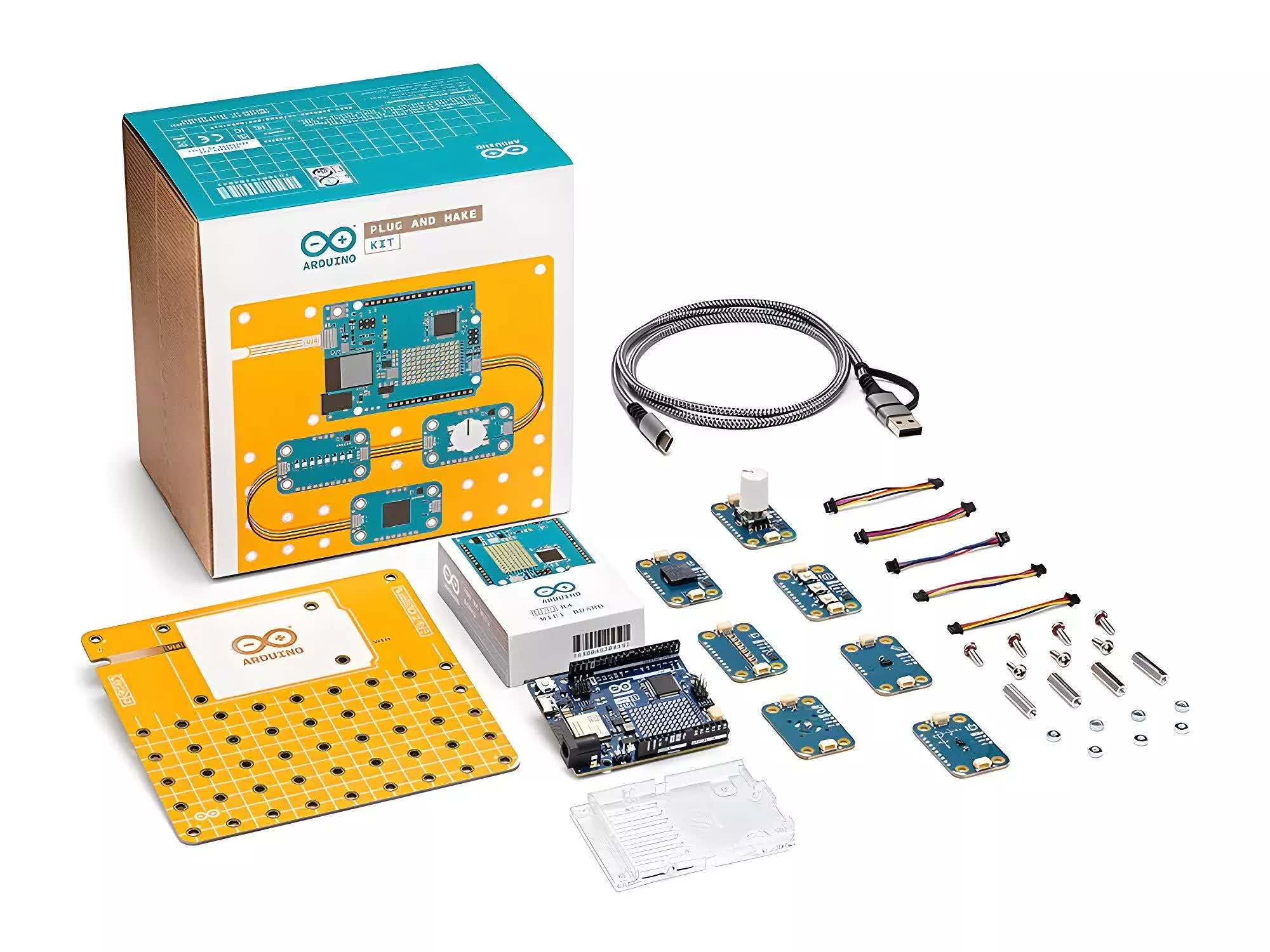The big picture: If you don't know anything about electronics but have always wanted to learn and build your own IoT project, Arduino has the solution for you. The Plug and Make Kit is a comprehensive product designed to jumpstart your IoT idea, without the need for soldering or jumper wires.
The Arduino team, known for providing various electronic and microcontroller components for do-it-yourself electronic hobbyists since 2005, has announced its new product, the Plug and Make Kit.
It's aimed at beginners as it removes the need to use a breadboard, jumper wires, or soldering. The magic lies in Arduino's Modulino nodes, which consist of various sensors and actuators that connect to the UNO R4 WiFi board.
The Plug and Make Kit is a complete package to get started. Inside the box, you will find:
- Arduino UNO R4 WiFi 32-bit microcontroller: the brains of your projects.
- Seven Modulino nodes consisting of sensors and actuators for different functionalities.
- Modulino Knob: for super-fine value adjustments
- Modulino Pixels: eight LEDs to shine bright, dim down, or change color
- Modulino Distance: a time-of-flight proximity sensor to measure distances with precision
- Modulino Movement: to perfectly capture movements like pitch, roll or tilt
- Modulino Buzzer: to generate your own alarm sounds or simple tunes
- Modulino Thermo: a sensor for both temperature and humidity data
- Modulino Buttons: three buttons for quick project navigation
- The Modulino Base for mounting and organizing your project components.
- USB-C cable with USB-A adapter to power and upload code to the UNO R4.
- Qwiic cables are used to connect the Modulino nodes to the UNO R4.
Additionally, buyers will be given seven projects to kickstart their learning, including a weather report, a game controller, and smart lights. You can enhance your learning by using Arduino's Cloud, which is a dedicated content platform that offers visual sandboxing for your projects, a library of pre-configured projects, and a smartphone app for monitoring and controlling your IoT devices.
The Plug and Make concept sounds similar to other products in this space. Sphero's littleBits. made a splash with its 'snap and build' concept back in 2014. Why did it take so long for Arduino to develop the Plug and Make Kit? This was not the first attempt; according to Arduino's founder Massimo Banzi, "Innovation takes time and you have to wait for the right moment. We started building modular electronics with TinkerKit back in 2006 then moved forward with the EU Project PELARS in 2014, ESLOV in 2016 and Plug&Make in 2024."
Lowering the barrier to entry for learning electronics and building your own IoT projects is welcome news for anyone who wants to get involved in electronics but doesn't know where to start. Now, I have no excuses for not building my food pantry inventory system.


